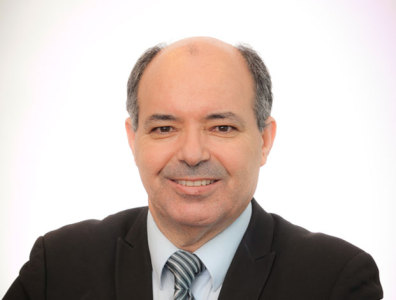
How to bridge Qatar’s skills gap

Professor Laoucine Kerbache, Dean and CEO of HEC Paris in Qatar, talks to TOGW about the need for qualified upper management in Qatar’s hydrocarbons industry. HEC Paris Business School joined Doha’s Education City in 2010 with a mandate to develop executive education programmes and research in Qatar and the Gulf region.
In the oil and gas industry, management teams are mostly engineers and highly specialised support staff with a great deal of technical and technological knowledge, but very limited training in management and soft skills. This shortcoming highlights the need for additional training.
DRIVE THE INDUSTRY: In countries such as Qatar, where oil and gas make up a large proportion of the GDP, lower energy prices translate into less revenue from the hydrocarbons industry. Therefore, efficiency measures must be implemented to rationalise operations, minimise costs, and maintain or increase productivity. Management teams with solid engineering experience coupled with additional managerial skills will be better equipped to face these challenges and put in place measures to boost profits.
The Qatari government is aware of the need for more managerial skills in the oil and gas industry and has been fully supportive of Qatari nationals qualified to join executive management programmes offered in the country. These trained executives will be very important for driving Qatar’s public and private sectors. The development of the private sector is essential for sustained economic growth and diversification.
These challenges are also shared by other hydrocarbons producers in the region. The Executive MBA programme offered by HEC Paris in Qatar illustrates this need for local executives with adequate skills quite well, as it is made up of nearly 40-percent Qatari nationals, 30 percent from other states in the Middle East, and the remainder from elsewhere.
REVERSE BRAIN DRAIN: Qatar’s energy industry has historically relied on an inflow of expatriate workers. Qatar, similar to other Gulf countries, has offered many opportunities in this industry over the past decade and has attracted skilled people to drive its industry over the long term. This situation has been changing, with an increasing number of qualified Qatari nationals entering the workforce.
Yet new challenges will probably emerge from changing dynamics in the hydrocarbons industry at a global level. Due to the shale revolution, the oil and gas industry has been revived in places such as the US and Canada, and new developments may emerge in Asia or even in Europe. Production and exports are likely to come from a more diverse set of countries, which may reduce the importance of the Gulf as a resources provider.
This may initiate a reverse brain drain from the region. People drawn to the opportunities offered by the Middle East may want to move to countries such as the US where the industry is booming. I have not yet seen any significant research on the impact of ongoing major industry changes on human capital flows, but I expect the flow of expatriate workers to the Middle Eastern oil and gas industry to be somewhat reduced in the years to come.
Despite this, expatriates will still play a vital role in the region’s energy industry to compensate for the lack of domestic workers. The number of economically active Qatari citizens is increasing, a dynamic that has been encouraged by governments of the region.
ENLIGHTEN THE PEOPLE: The Gulf region is experiencing strong economic and demographic growth. The population is rising exponentially, particularly in terms of students and professionals, many of whom are women. The demand for education institutions – in particular business and engineering schools – is therefore tremendous.
The development of foreign universities’ international campuses in the UAE and Qatar provides extra capacity to augment local universities and colleges. In Qatar, the new Hamad Bin Khalifa University complements Qatar University and the Education City branch campus. Today, Qatari nationals and residents have the opportunity to receive excellent education without leaving the country.
The next challenge is for companies in the energy industry to consolidate and build competitive advantages by retaining talent at the technical and managerial levels. Qatari nationals with engineering degrees are often eager to move up to managerial positions after three to four years of experience at more technical positions. Most of the time, they will first need additional managerial education and training to complement the engineering skills they already have. It is a challenge for oil and gas companies to build strong capabilities and human capital in such key areas. The development of research efforts at universities and in the private sector will be key to making Qatar and the Gulf a technical and technological innovation centre.
Read our latest insights on:




















